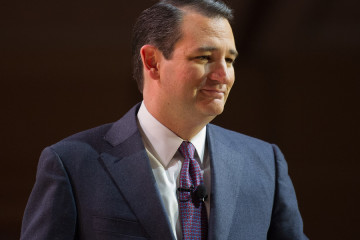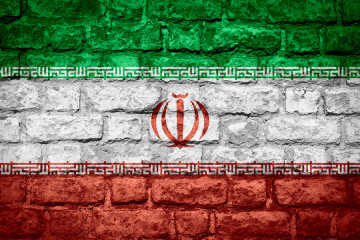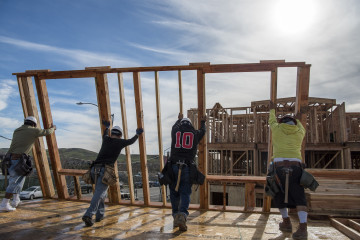Roots of the Jewish Power Struggle Roiling Israel: Noah Feldman

©2015 Bloomberg View
NT1DAI6JTSEA
(Bloomberg View) — Should the Jews have a pope? For most of the last 2,000 years, the answer has been “no.” Rabbinic authority has been decentralized, with each community choosing its own religious leaders to follow.
But now Israel’s Chief Rabbinate is seeking to monopolize and centralize control over Jewish law through the power of the state of Israel. A few Orthodox rabbis are fighting back, like those who announced a new conversion court this week. Because Israel won’t recognize the court, the battle is going to be joined in earnest.
And the stakes are big for 300,000 Israelis, descendants of immigrants from the former Soviet Union who identify as Jews but whose religious status under Orthodox Jewish law remains in question.
Start with the historical reasons Judaism doesn’t have a central authority like the Roman Catholic Church or a central leader like the pope. The answer isn’t in the Hebrew Bible, which has kings and high priests aplenty and envisions a functioning state, albeit one divided within a couple of generations into the separate kingdoms of Israel and Judah.
Decentralization within Judaism goes back to the rabbis who came to take a central position in Jewish religious life after the destruction of the Second Temple in 70 A.D., and the end of long-term Israelite sovereignty over what the Romans called Palestine. From the start, the rabbis had no Jewish state to call their own — and if one had existed, they wouldn’t have ruled it.
With no state to enforce unity, it’s pretty hard for a religious authority to establish definitive control over believers. One of the brief moments in Jewish history in which rabbinic authority was somewhat centralized took place under the Abbasid caliphate in Iraq, where non-Jewish authorities recognized two chief rabbis, called Geonim, as the Jewish religious authorities. But it’s no coincidence that even then, there were two rabbis, not one, each the presiding authority over a separate Talmudic academy.
Thus, the rabbinic culture of disagreement and debate both fueled the diffusion of religious authority and also was shaped by it. Over the centuries, groups of rabbis would sometimes come together to issue collective legislation. But for the most part these were temporary coalitions.
In the 16th century, reacting to the Jewish expulsion from Spain in 1492, a handful of rabbis gathered in Safed, Israel, and dreamt of unifying Jewish religious authority. They hoped to re-establish a chain of rabbinic ordination that they believed would enable them to exercise universally accepted authority. But their dream never became an accepted reality, and their efforts were met with as much rabbinic opposition as approbation.
The modern state of Israel created a new opportunity for centralizing religious authority — at least in theory. The state acknowledged two chief rabbis, one Ashkenazic (European) in origin, the other Sephardic (roughly, Mediterranean). More important, the state by legislative act created a “Chief Rabbinate” and gave it legal authority over marriage and divorce for all Jews, regardless of whether they were devout or secular, Orthodox or free-thinking.
To this day, no Jew in Israel can marry without the permission of the rabbinate. This real-world power gave the Chief Rabbinate a crucial foothold. Because the rabbinate doesn’t recognize or acknowledge marriage between Jews and non- Jews, the power over marriage is simultaneously a power over defining who counts as a Jew for the purpose of making this most basic life decision.
For the first several decades of its existence, the rabbinate faced ultra-Orthodox (Haredi) opposition to the idea that it had this overarching authority. Haredi rabbis were often skeptical of the state’s claims, and sometimes even opposed the Zionist project itself. Their insistence on controlling their own marriages (not to mention kosher supervision, another big business) ensured that the Chief Rabbinate wasn’t the only game in town.
Gradually over the past 20 years, however, the situation has been changing. Haredi attitudes toward the state of Israel have been softening as Haredi political parties have gained greater power and the Haredi population has grown. Haredi rabbis now play a far more significant role within the rabbinate and through influence from the outside. Rather than ignoring the Chief Rabbinate, prominent Haredi rabbis would now like to control it.
The Chief Rabbinate has never acknowledged the validity of conversions to Judaism performed by Reform, Reconstructionist or Conservative rabbis, a source of dissatisfaction among those denominations, which remain small and peripheral in Israel even as they make up the majority of Jews in the U.S. But it was some source of relief to know that even within the Orthodox fold, the rabbinate didn’t have total control.
Now that, too, is changing as the rabbinate, with Haredi support, asserts greater control over conversion. Recently Israel was on the brink of adopting a slightly more liberal conversion process, intended to make it easier for the children of Soviet-origin immigrants to undergo conversion. But Haredi parties successfully blocked the move, ensuring that all conversion in Israel be centrally controlled by the Chief Rabbinate.
A group of more moderately oriented Orthodox rabbis have responded by creating their own independent conversion court, an exercise of the rabbinic diversity that has predominated in Jewish history. But because the rabbinate won’t recognize its conversions, people converted to Judaism by that court still won’t be able to get married in Israel.
Obviously, a liberal democratic state shouldn’t be giving any group of rabbis final say over who can get married. But liberalism isn’t the only reason to think that the Chief Rabbinate should be disestablished. Even from the standpoint of traditional rabbinic Judaism, the rabbinate is violating the spirit of rabbinic equality and diversity.
As a diaspora religion, Judaism survived and even prospered because of its lack of central authority. The existence of the state of Israel shouldn’t be used as an excuse to quash that diversity and the religious creativity it fostered.
This column does not necessarily reflect the opinion of the editorial board or Bloomberg LP and its owners.
To contact the author on this story: Noah Feldman at nfeldman7@bloomberg.net To contact the editor on this story: Stacey Shick at sshick@bloomberg.net
For more columns from Bloomberg View, visit http://www.bloomberg.com/view






No Comment